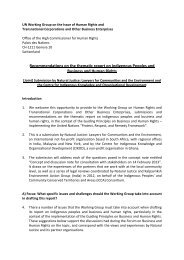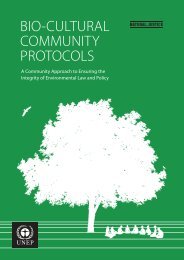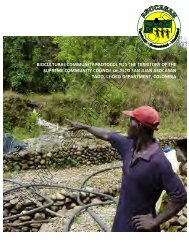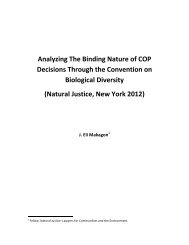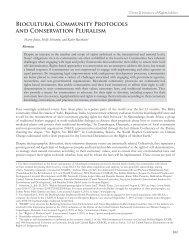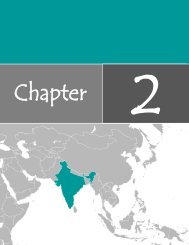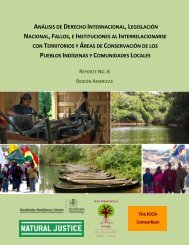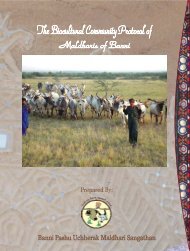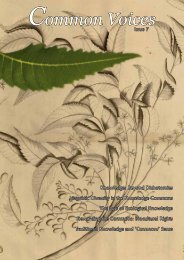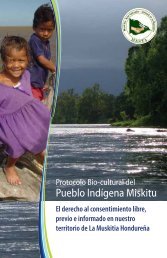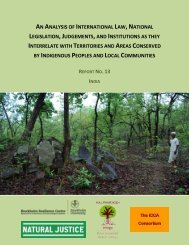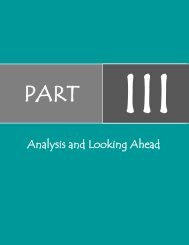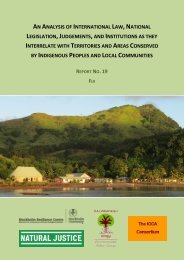English - Natural Justice
English - Natural Justice
English - Natural Justice
You also want an ePaper? Increase the reach of your titles
YUMPU automatically turns print PDFs into web optimized ePapers that Google loves.
Resource RightsThe Constitution of the State ofPanama ignores the rights ofIndigenous peoples to their naturalresources. According to theConstitution, the State has nationalsovereignty over all naturalresources in the country.Subsequent laws stipulate thatsubsoil resources and forests are allproperty of the State, disregardingIndigenous peoples’ rights to thesame resources. This has triggeredmany conflicts and cases of loss ofnatural resources due to both legaland illegal exploitation.Guna boats, Panama. © Jorge AndreveThe Constitution of Suriname states in Article 41 that natural riches and resources are theproperty of the nation and that the nation has the inalienable right to take full possession ofthem for the economic and social development of Suriname. The Constitution does notacknowledge the existence or rights of Indigenous or tribal peoples in Suriname.All sub-soil resources, including petroleum, are the property of the Fijian State as providedby Section 3 of the Mining Act. The Director of Mineral Resources has broad powers to issueprospecting licenses over land areas without owner consent and to declare a site less than250 ha a mining site if it has importance to the nation, even if it is in a gazetted protectedarea. Section 11 provides a narrow class of lands exempt from any prospector’s rights ormining tenement, including Fijian villages, burial land and reserved forests, amongst others.d. Marginal Rights-based Approach to <strong>Natural</strong> Resources and theEnvironmentIn many cases, laws relating to natural resources and the environment make no specialprovision for Indigenous peoples or local communities. This effectively criminalizes theircustomary livelihoods and resource use practices. At the same time, the legal frameworkscreate sectoral approaches to agriculture, forests, fisheries, water, wildlife, and othernatural resources. This not only fragments otherwise interconnected ecosystems, but it alsotends to mandate their overexploitation for short-term economic gains. In this light, newand emerging financial and market-based incentive schemes, for example, access andbenefit sharing (ABS) and reducing emissions from deforestation and forest degradation(REDD), remain heavily contested. Indigenous peoples and local communities fear they willcause further marginalization, in addition to turning nature and natural resources purely intotradable commodities in the eyes of the state.<strong>Natural</strong> Resource ManagementIn Suriname, the Hunting Law 1954 (revised last in 1997), the Fish Protection Law 1965(revised last in 1981) and the Sea Fishing Law 1980 (revised last in 2001) similarly make noreference to Indigenous and tribal peoples, thus making their customary livelihood practices



